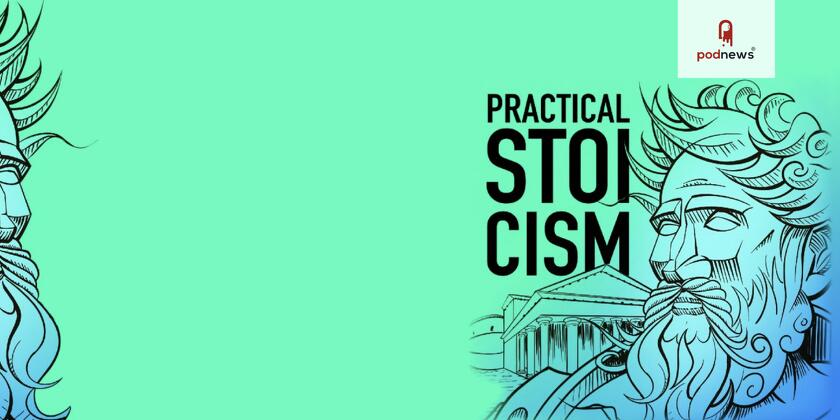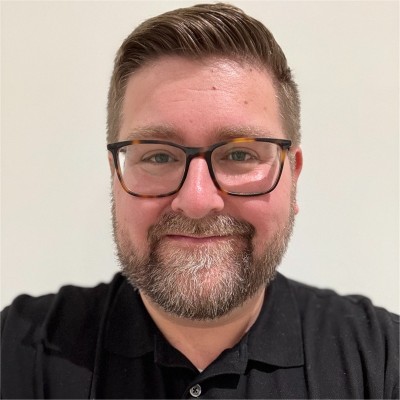
How I Sold My Podcast by Accident

This article is at least a year old
My intentions with starting the Practical Stoicism podcast were as honorable as intentions can get when it comes to starting a podcast: I wanted to produce something I cared about and that was capable of helping others improve their lives.
Had you asked me, in January 2022 (when I started), whether I thought I’d achieve the aspirational aims of those intentions, I would have almost certainly replied, “I doubt it.”
I used to operate a full-service audio production studio in Maine, The Portland Pod, and, it being the case that many of my clients were podcasters, I knew exactly how difficult it was for any podcast, good or bad, to get significant traction without an immense amount of luck.
There’s a lot of talk about what boxes a podcast needs to check in order to be successful, but the only one they must absolutely check is the only one they cannot check themselves.
That box is labeled “Yes” and is next to the question, “Do you have it?”
Whatever “it” is, it isn’t production value or sound quality. It isn’t even content or expertise. Instead, it’s something intangible—something like a vibe.
We podcasters cannot will this vibe into existence – it’s either in us, or it isn’t.
That’s the one thing the “podcast gurus” never tell us (because, if they did, we wouldn’t hire them): our audience is entirely in charge of our success.
Knowing this, when I started Practical Stoicism, I spent no money on advertising and created no social media accounts. I posted no audiograms, I shared no links, and I promoted the show in no strategic way whatsoever.
I kept it simple, cheap, and honest.
I woke up on Sunday morning, read a passage from the Meditations of Marcus Aurelius, ate breakfast while contemplating said passage, and then I’d sit down and bang out a 1500 word interpretation of its meaning. Then I’d grab a glass of water, sit down in front of my mic, and record the episode. An hour later, I’d publish the finished episode.
Nothing special, nothing excellent, nothing (I thought) unique.
Nothing special, and yet, by the early Summer of that year, the podcast was getting over 100,000 downloads a month — and by October it was getting 300,000.
Turns out, I had the vibe.
Mistakes and lessons
I was approached by a fellow podcaster at Podcast Movement 2022:
“XYZ podcast network wants to talk to you about your show. Their CEO likes it and they’d like to bring you on.”
By the end of the year I signed, and so began a one-year journey of learning that it pays not to get caught up in the excitement of “making it.”
I left that network in December of 2023 and, with some reservations after the experience, signed with Evergreen Podcasts in January 2024.
I’m very happy at Evergreen, but the show had suffered some setbacks in 2023.
I’d brought on a co-host that didn’t have the vibe, and it upset my base.
I handled the letting go of that co-host poorly, and that poor handling sewed distrust amongst some of my most loyal listeners. The community I’d built suffered a hit at the same time Spotify’s algorithms were changing, and, by June of 2024, I’d lost 50% of my monthly download numbers.
Ouch.
Big ouch.
Humbling, depressing, gut-wrenching ouch – and it was my fault.
I’d been so caught up in the business of podcasting (as a full-time creator) that I’d become kind of robotic and detached from the service aspect of what I was doing – service to an audience of individuals who were turning to my show for help improving their own lives.
It’s not that I had stopped caring, rather I was now so busy with the business aspects of podcasting that I had far less time to indulge in the doing of caring.
Remember who determines whether the vibe is present? Well, my audience had decided that I was losing the vibe. I was far less vibey.
Making concessions and trying to turn things around
In the background of all this is, of course, declining income, but, more importantly, declining income in parallel with the birth of my first son (Cailean), my emigration from the United States to the United Kingdom, and the start of my marriage to my (now) wife Ross.
I began to think it was time to leave podcasting behind.
I had a family now, I needed financial stability, and after a lifetime of living like a guy who was never going to get married or have kids, maybe it was time to either give up podcasting or make it so simple it couldn’t get in the way.
I decided to simplify things and get back to basics.
I rebooted the show, returned it to its original format and run time, reconnected with my audience, and dropped back from multiple episodes a week to just one.
This stopped the audience loss, and the show began to rebound, but it was clear that the financial damage wasn’t going to correct with any great haste.
As a full-time creator who had recognised the folly of his choices and actions, and had now done everything he could to make amends, I made a choice to do something I swore to myself years earlier (when I left my last day job and opened my studio) that I would never do again: I chose to take a job working for someone else.
Having a “regular job” was a good reset, but it couldn’t stop the inevitable
A few months into my new position, I began to feel silly (stupid, frankly) for having not balanced my passion for the podcast (and its aims) with the benefits of formal employment earlier. Had I done so, it may have been the case that all my podcast troubles would have been avoided.
The security and comfort of my new job enabled me to feel less pressured for the podcast to thrive (by any definition, but especially financially), which enabled me to feel less up against the ropes.
As refreshing and relieving as my newfound financial security was, the realities and challenges of being a new (first time) parent made justifying any time investment into a financially inconsequential hobby more than a little difficult.
I decided to either quit or find a way to make the podcast financially consequential
To be honest, I had consigned myself to quitting. The rise and fall of the show had been so emotionally draining that I couldn’t imagine anyone wanting to buy it.
I approached Michael and Gerardo at Evergreen Podcasts and said something to the effect of, “Why don’t you keep more of the ad rev, take 50% ownership of the IP, and just pay me a guaranteed $X.XX every month?”
I figured that would be enough for me to justify creating weekly episodes, it would help my family save money, and it would ensure I could continue to service my audience without burning myself out.
Fully expecting them to say, “Why would we do that for a show that spent the last year in decline?” you can imagine my surprise when they instead said, “Why don’t we just buy the whole thing for a lump sum, pay you a healthy ongoing salary to continue to host it, and help grow this thing back to what it was?”
My jaw may have literally dropped – I don’t remember.
The details and experience of selling
I won’t share the exact figures with you, but I will say that I sold Practical Stoicism for more than $100K but less than $500K.
I will also say that the deal was structured for two large payouts up front, and the remaining amount amortized (monthly) over years two and three of a separate Contractor Agreement (part of the arrangement was that I’d continue to host the show and be paid for doing so).
I chose to structure the sale this way because doing so would allow me to claim some immediate financial wins (retirement and 401K contributions, various investments for long-term planning, etc) while at the same time creating a supplementary income stream in the medium term (I don’t plan on quitting my day job any time too soon).
The experience of selling was, for the most part, pleasant, but also somewhat taxing as it required much more of my attention and time than I thought it would.
It also took a lot more of my time than I thought it would (a full 4-months).
My choice to hire Heather Osgood of The Podcast Broker to manage some of the back and forth went a long way in keeping me patient – Heather’s involvement is also the reason the final amount of the sale was nearly triple the original offer (I recommend anyone considering selling their podcast to do so through a broker like Heather – or, better yet, with Heather herself).
Beyond that, selling a podcast is a bunch of negotiating, a bunch of documents going back-and-forth until everyone’s happy, and a committed effort to not falling asleep when reading the same contract for the tenth time — legal jargon, it turns out, is as effective a lullaby as Twinkle Twinkle Little Star.
What I’d like you to takeaway from this
First and foremost, that indie podcasters (not the ones with big budgets who win all the awards and still claim to be “indie”, but truly independent podcasters, the ones that entirely embody what it means to be “indie”) can still be of interest to networks and put a meaningful price tag on their IP.
We might not be The Joe Rogan Experience or Call Her Daddy, but we’ve still got something of value and we shouldn’t completely dismiss the idea of “making it” one day.
Second, that it can take a long time to get anywhere, and you should keep at it and believe in yourself.
I started podcasting in 2010 and, keeping the focus on Practical Stoicism, I’ve written over 500,000 words on Stoicism either as articles, academic papers, my new book (which just published a couple of weeks ago now), or episode scripts.
One last thing, and I’ll to borrow from some dusty old Stoic texts in saying it: the timeline of our success is “ouk eph’hemin” (οὐκ ἐφ’ ἡμῖν); “not up to us.”
Whether you choose to continue to strive toward our definition of success, however, that is entirely eph’hemin. That is entirely up to us.
Thanks for reading, and keep podcasting.
Listen


































































































